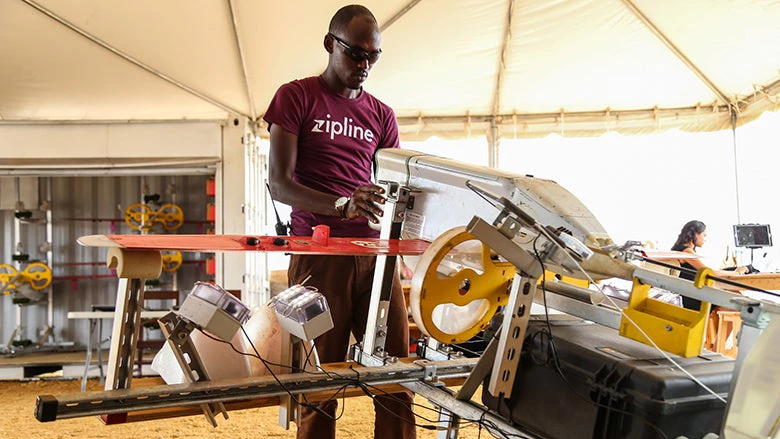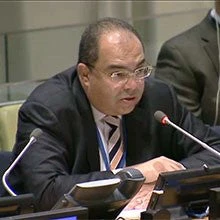
Billions of people are connected by mobile devices, with unprecedented processing power, storage capacity, and access to knowledge -- foreshadowing stunning possibilities. This potential is multiplied by technologies such as artificial intelligence, robotics, big data processing, the internet of things, autonomous vehicles, 3-D printing, blockchain, etc.
This so called 4th industrial revolution can help accelerate progress towards the Sustainable Development Goals (SDGs). Indeed, Science, Technology and Innovation, together with Financing for Development, were identified by the UN as one of the two main “means of implementation” to achieve the SDGs by 2030 as it cuts across all SDGs as highlighted by International Telecommunication Union’s Fast Forward Progress Report – Leveraging Tech to Achieve the SDGs.
At the World Bank Group (WBG), we’re working to ensure that economies in developing countries can harness innovation to eliminate extreme poverty and boost shared prosperity. To address this challenge, we are developing a corporate approach to disruptive technology. We will be engaging governments and citizens, coordinating development partners, and mobilizing the private sector to on the “three B’s” approach:
- Build: Develop the foundational building blocks for sustainable, technology-led economies (for example, the Digital Economy for Africa Initiative, and Identification for Development).
- Boost: Expand the capacity of people and institutions to thrive in a resilient society in the face of disruption (e.g., our Human Capital Project, and ongoing Citizen Engagement).
- Broker: Harness disruptive technology, data, and expertise to solve development challenges and manage risks through collaborations (e.g., with partners such as Airbnb, Amazon, the GSMA, and LinkedIn).
Of course, disruptive technology is no panacea for the achievement of the SDGs, and there are both benefits and risks which we will need to manage. This paradox was clear at an event on SDGs and Big Data that I hosted at this year’s WBG-IMF Spring Meetings. Panelists described how the ongoing data revolution is changing the way data is gathered, understood, shared, and utilized in development.
One observer has called data a new asset class. Big data sets, so complex that traditional processing software cannot analyze them, are generating actionable insights out of the data emitted from non-traditional sources like mobile technology, social networks, news services, satellites, sensors, and machine-to machine transactions.
However, the same panelists were quick to point out that fundamental elements of human rights must be safeguarded to realize the opportunities presented by big data. Concerns about privacy, ethics, cybersecurity, and respect for data sovereignty require us to assess the rights of individuals along with the benefits of the community. Recent headlines on data breaches, along with the new EU Directive of Data Privacy show that we have just started to grapple with these issues.
Automation is also disrupting labor markets, and could displace a significant number of jobs over the next few decades. This was highlighted in the recent WBG report Trouble in the Making? The future of Manufacturing led Growth. And remember that innovations such as blockchain technology are being used for speculative purposes as evidenced by the rise of cryptocurrencies, which have been subject to fraud, theft, and criminal misuse.
Mapping scenarios is a useful tool in times of disruption. Taking into consideration the inherent benefits and risks for development of disruptive technology, after extensive consultations across the practices of the WBG, we have postulated the following 4 scenarios based on two axes: pace of technological change adoption and poverty and shared prosperity to consider.
Clearly, the aim of the “3 B’s” approach will be to support countries ambitions to use technology to achieve the SDGs - supporting countries move the robust tech-enabled growth scenario - while avoiding and mitigating the biggest risks – including the potential disruption of millions of jobs and instability in institutions.
This will be a moving target, as new technologies and innovations are introduced, and as policymakers respond to these changes. There is tremendous potential for good in these technological disruptions, but as always, we will carefully consult with our clients to help them choose the best path for their own development.


Join the Conversation